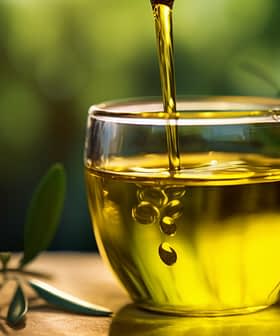Extra Virgin Olive Oil Improves Health Outcomes for Fibromyalgia Sufferers
Biologically active compounds in EVOO decrease oxidative stress and improve functional capacity in fibromyalgia sufferers.
Fibromyalgia is a chronic syndrome that causes widespread musculoskeletal pain, with a prevalence of 1.2 to 5.4 percent, affecting more women than men. A study found that consumption of extra virgin olive oil reduced oxidative stress markers and improved health parameters in women with fibromyalgia, suggesting potential benefits in managing the condition.
Fibromyalgia is a chronic disease syndrome that causes widespread musculoskeletal pain for sufferers. The pain can be so debilitating that it can imposes physical, psychological and social limitations that decrease quality of life. The overall prevalence of fibromyalgia is 1.2 to 5.4 percent, with women suffering with the condition more than men.
Its onset and causes are not fully understood. Various research studies have tried to investigate the condition and have found the cause to be many factors including impaired hormone function, altered neurotransmitters, increased inflammation, and oxidative stress, which arises as a leader.
See Also:Olive Oil Health Benefits
extra virgin olive oil is a natural antioxidant that has been shown to play a role in downregulating oxidative stress in various studies. Previous research has shown that antioxidant rich supplements and foods have decreased pain in fibromyalgia sufferers.
Until now, there have been no studies examining the effects ofextra virgin olive oil on fibromyalgia outcomes. For the first time ever, a study published in Biological Research for Nursing, aimed to investigate ifextra virgin olive oil could contribute benefits on oxidative stress markers and health parameters in 23 women participants suffering from fibromyalgia.
Participants were enrolled in a 3 week randomized, controlled, double-blind trial. The intervention included the consumption ofextra virgin olive oil or refined olive oil (ROO), each group consuming 50 ml/ day of raw oil. The organic olive oil samples were both from Olifarma S.L., Granada, Spain and consisted of different antioxidant content.
Participants were required to complete a series of 24-hour food recalls. Estimates of olive oil consumption, along with macro and micronutrient quantities were calculated from the average of 3 days of food recall data. Based on baseline results, participants were given nutritional instruction for improving their diet and supplied with olive oil samples.
Along with dietary data, participants were also required to undergo interviews and questionnaires about their physical and mental status and functional capacity in activities of daily living, along with having blood samples collected to measure various oxidative parameters.
The results showed that theextra virgin olive oil group significantly reduced oxidative stress markers, had a greater reduction in levels of protein carbonyls, and decreased lipid peroxidation levels, whereas the ROO group showed no such effects. However, as far as the antioxidative profile, there was no difference between the two groups for enzymatic activity. Though zinc levels did increase in both groups.
Theextra virgin olive oil group showed significant changes in relation to health-related parameters, where the ROO group showed no effect on these outcomes and even showed a worsening of scores in relation to some values.
The authors concluded that for the first time, it had been revealed that “EVOO may protect patients against fibromyalgia-induced oxidative stress by diminishing protein, lipid, and DNA oxidation and raising zinc levels as well as improve functional capacity and health-related psychological status.”
They stated, “our data reveal that consumption of organicextra virgin olive oil may improve oxidative stress in patients with FM, suggesting that its consumption contributes to the dietary intake of biologically active compounds.”
The authors speculated that these effects are likely due to phenolic compounds oleuropein and hydroxytyrosol but suggest that further research is needed to confirm these results and establish contributing mechanisms to these effects.









